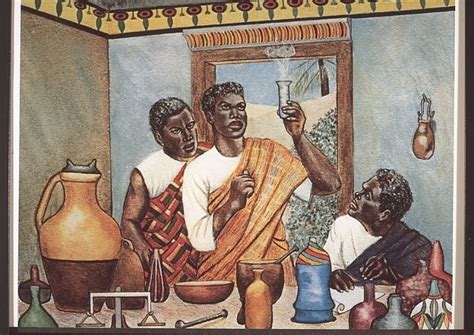
Italian Prime Minister Giorgia Meloni’s apparent eye-roll directed at French President Emmanuel Macron during a G7 summit side conversation has ignited a global social media firestorm, sparking debate about the leaders’ relationship and differing political stances. The fleeting moment, captured on video, quickly went viral, turning into a Rorschach test for international relations.
The incident occurred during a relaxed moment at the G7 summit held in Borgo Egnazia, Italy, where leaders were engaging in informal discussions. As Macron leaned in to whisper something to Meloni, the Italian Prime Minister’s reaction – a subtle but noticeable eye-roll – was caught on camera and disseminated rapidly across social media platforms. The clip, devoid of audio, left interpretations open to speculation, fueling a diverse range of opinions on the exchange.
The video quickly went viral, with users analyzing Meloni’s expression and speculating about the content of Macron’s whisper. Some interpreted the eye-roll as a sign of disapproval or annoyance, while others dismissed it as a harmless, fleeting reaction. The incident has resonated particularly strongly due to the known political differences between Meloni, who leads a right-wing government in Italy, and Macron, a centrist figure in French politics.
The political backdrop adds significant weight to the seemingly innocuous interaction. Meloni and Macron represent divergent political ideologies and have previously clashed on issues such as immigration, economic policy, and European Union governance. Their contrasting views have made their interactions a subject of intense scrutiny. The eye-roll incident, therefore, is being viewed by many as a visual representation of the underlying tensions between their respective governments.
While neither leader has publicly addressed the incident, the widespread attention underscores the intense interest in the dynamics between major world leaders. The G7 summit, designed to foster cooperation and address global challenges, also serves as a stage for these interpersonal interactions, which can often be interpreted as subtle indicators of broader geopolitical trends.
The incident serves as a reminder of the power of social media to amplify even the smallest of moments, turning them into global talking points. In an era of constant connectivity and instant communication, the actions and reactions of world leaders are subject to unprecedented levels of scrutiny and interpretation.
The exchange occurred as leaders gathered for the annual summit, which brings together heads of state from Canada, France, Germany, Italy, Japan, the United Kingdom, and the United States, along with representatives from the European Union. The G7 serves as a forum for discussing pressing global issues, coordinating policies, and addressing shared challenges. This year’s summit, hosted by Italy, focused on topics such as climate change, economic stability, artificial intelligence, and the ongoing conflicts in Ukraine and the Middle East.
The summit itself aimed to present a united front on these critical issues. However, the viral video of Meloni and Macron highlights the complexities and nuances of international relations, where personal dynamics and political ideologies can influence even the most formal of settings.
Diverging Ideologies and Policy Disagreements
The root of the perceived tension between Meloni and Macron lies in their differing political ideologies. Meloni leads a right-wing coalition government in Italy, characterized by a conservative stance on social issues, a focus on national sovereignty, and a more restrictive approach to immigration. Her Brothers of Italy party, which traces its origins to the post-fascist Italian Social Movement, has advocated for policies that prioritize Italian interests and assert greater control over national borders.
In contrast, Macron represents a centrist, pro-European perspective. His political platform emphasizes European integration, multilateralism, and a more liberal approach to social and economic issues. He has been a vocal proponent of strengthening the European Union and addressing global challenges through international cooperation.
These fundamental differences have led to disagreements on various policy matters. Immigration has been a particularly contentious issue, with Meloni advocating for stricter border controls and a more assertive approach to preventing illegal immigration into Italy. Macron, while acknowledging the need to manage migration flows, has emphasized the importance of upholding humanitarian principles and promoting integration.
Economic policy is another area of divergence. Meloni’s government has pursued policies aimed at boosting Italian competitiveness and reducing the country’s debt burden. These policies have sometimes clashed with the European Union’s fiscal rules and Macron’s broader vision for European economic integration.
On the European stage, Meloni has been critical of what she perceives as excessive bureaucracy and overreach by the European Union. She has advocated for a greater emphasis on national sovereignty and a more flexible approach to implementing EU policies. Macron, on the other hand, has been a strong defender of the EU and has called for greater integration in areas such as defense, energy, and economic policy.
Past Interactions and Public Perceptions
The relationship between Meloni and Macron has been closely watched since Meloni assumed office in October 2022. Their initial meetings were characterized by a degree of formality and reserve, reflecting the underlying political differences between their governments.
In October 2022, shortly after Meloni’s election, Macron and Meloni met in Rome for their first official meeting. The meeting was described as cordial but also highlighted the differences in their political views. Both leaders emphasized the importance of cooperation on issues such as energy security and migration, but they also acknowledged their disagreements on other matters.
In November 2022, Meloni and Macron met again on the sidelines of the COP27 climate summit in Egypt. During this meeting, they discussed the need for greater cooperation on climate change and energy transition. However, they also reiterated their differing views on immigration policy.
In January 2023, Macron visited Rome for a summit with Meloni. During this visit, the two leaders reaffirmed their commitment to strengthening bilateral relations between France and Italy. However, they also acknowledged their disagreements on issues such as the management of migration flows across the Mediterranean.
The public perception of their relationship has been shaped by media coverage that often highlights their contrasting ideologies and policy differences. The viral video of the eye-roll incident has further fueled speculation about the state of their relationship and the underlying tensions between their governments.
The Context of the G7 Summit
The G7 summit is an annual gathering of leaders from the world’s major industrialized nations. The summit provides a forum for discussing pressing global issues, coordinating policies, and addressing shared challenges. This year’s summit, hosted by Italy, focused on topics such as climate change, economic stability, artificial intelligence, and the ongoing conflicts in Ukraine and the Middle East.
The summit aims to present a united front on these critical issues. However, the viral video of Meloni and Macron highlights the complexities and nuances of international relations, where personal dynamics and political ideologies can influence even the most formal of settings.
During the summit, leaders engaged in a series of discussions on various topics, including the war in Ukraine, global economic challenges, and climate change. They also addressed issues such as food security, energy security, and global health.
The summit concluded with a joint communiqué outlining the G7’s commitments on these issues. The communiqué reaffirmed the G7’s support for Ukraine, its commitment to addressing climate change, and its determination to promote global economic stability.
However, the viral video of Meloni and Macron served as a reminder that even amidst the formal discussions and joint statements, underlying tensions and differing perspectives can persist.
Social Media Reactions and Interpretations
The video of Meloni’s apparent eye-roll quickly went viral on social media platforms, sparking a flurry of reactions and interpretations. Users analyzed the video frame by frame, offering their opinions on Meloni’s expression and speculating about the content of Macron’s whisper.
Some users interpreted the eye-roll as a sign of disapproval or annoyance. They suggested that Meloni was reacting negatively to something Macron had said or that she was simply expressing her disdain for his political views.
Other users dismissed the eye-roll as a harmless, fleeting reaction. They argued that it was impossible to know what Macron had said or what Meloni was thinking at the moment. They suggested that the video was being taken out of context and that it was unfair to draw conclusions about the relationship between the two leaders based on a single, ambiguous gesture.
The incident also sparked debate about the role of social media in shaping perceptions of international relations. Some commentators argued that social media can amplify even the smallest of moments, turning them into global talking points. They cautioned against drawing definitive conclusions based on viral videos or social media posts, which can often be misleading or taken out of context.
Other commentators argued that social media can provide valuable insights into the dynamics of international relations. They suggested that the viral video of Meloni and Macron offered a glimpse into the underlying tensions between their governments and the differing political ideologies that shape their interactions.
The Implications for Franco-Italian Relations
The eye-roll incident raises questions about the future of Franco-Italian relations. While both countries share close economic and cultural ties, their political differences have sometimes strained their relationship.
The incident could potentially exacerbate these tensions and make it more difficult for the two governments to cooperate on key issues. However, it is also possible that the incident will be quickly forgotten and that the two leaders will continue to work together in areas of mutual interest.
The future of Franco-Italian relations will depend on a variety of factors, including the political climate in both countries, the policy priorities of their respective governments, and the ability of the two leaders to find common ground on key issues.
Despite their differences, France and Italy share a common interest in promoting stability and prosperity in Europe. They also face shared challenges such as climate change, migration, and economic instability. It is therefore likely that they will continue to cooperate on these issues, even if their relationship remains somewhat strained.
Expert Commentary
Political analysts have weighed in on the incident, offering their perspectives on the significance of Meloni’s apparent eye-roll and its potential implications for international relations.
Some analysts have suggested that the incident reflects the broader trend of rising nationalism and populism in Europe. They argue that Meloni’s reaction is indicative of a growing skepticism towards European integration and a desire to assert national sovereignty.
Other analysts have downplayed the significance of the incident, arguing that it is simply a reflection of the personal dynamics between two leaders with differing political views. They suggest that the incident should not be interpreted as a major shift in Franco-Italian relations or a sign of deeper tensions between the two countries.
“It’s important not to overinterpret these kinds of moments,” said Dr. Lorenzo Castellani, a political science professor at LUISS University in Rome. “Leaders often have fleeting reactions that don’t necessarily reflect their true feelings or the state of their relationships.”
However, other experts argue that the incident is a symptom of deeper divisions within Europe. “This eye-roll is more than just a personal reaction,” said Dr. Sophie Mathieu, a specialist in European politics at Sciences Po in Paris. “It symbolizes the growing ideological divide between nationalist and pro-European forces in Europe.”
The Broader Context of G7 Dynamics
The G7 summit is not just a forum for formal discussions and policy coordination. It is also a stage for interpersonal interactions between world leaders, which can often be interpreted as subtle indicators of broader geopolitical trends.
The dynamics between G7 leaders can be complex and influenced by a variety of factors, including personal relationships, political ideologies, and national interests. The viral video of Meloni and Macron highlights the importance of these dynamics and the potential for even small gestures to be interpreted as significant political statements.
In recent years, the G7 has faced challenges in maintaining its unity and influence. The rise of new global powers, such as China and India, has shifted the balance of power in the world. The G7 has also struggled to address pressing global issues such as climate change, economic inequality, and international conflict.
The viral video of Meloni and Macron serves as a reminder of the challenges facing the G7 and the importance of fostering cooperation and understanding among its members.
Conclusion
The viral video of Italian Prime Minister Giorgia Meloni’s apparent eye-roll directed at French President Emmanuel Macron during a G7 summit side conversation has sparked a global debate about the leaders’ relationship and differing political stances. While the significance of the gesture remains open to interpretation, the incident underscores the intense scrutiny faced by world leaders and the power of social media to amplify even the smallest of moments. The incident also highlights the complexities and nuances of international relations, where personal dynamics and political ideologies can influence even the most formal of settings. Whether the “eye-roll heard ’round the world” will have any lasting impact on Franco-Italian relations remains to be seen, but it serves as a reminder of the ever-present tensions and complexities that underlie the surface of international diplomacy. The incident underscores the importance of fostering cooperation and understanding among world leaders in order to address the pressing global challenges facing the international community.
Frequently Asked Questions (FAQs)
-
What exactly happened between Giorgia Meloni and Emmanuel Macron at the G7 summit?
- A video circulating on social media shows Italian Prime Minister Giorgia Meloni appearing to roll her eyes as French President Emmanuel Macron leaned in to whisper something to her during a relaxed moment at the G7 summit in Borgo Egnazia, Italy.
-
Why has this incident garnered so much attention?
- The incident gained traction due to the known political differences between Meloni, who leads a right-wing government in Italy, and Macron, a centrist figure in French politics. The perceived eye-roll was interpreted by many as a visual representation of the underlying tensions between their respective governments and ideologies. Also, social media amplified the incident turning it into a global conversation.
-
Have Meloni and Macron addressed the incident publicly?
- As of the latest reports, neither leader has publicly addressed the incident. The lack of comment has further fueled speculation and debate about the meaning and implications of the exchange.
-
What are some of the key policy disagreements between Italy and France under Meloni and Macron’s leadership?
- Key disagreements include immigration policy, with Meloni advocating for stricter border controls and Macron emphasizing humanitarian principles; economic policy, where their visions for European economic integration differ; and European Union governance, with Meloni favoring more national sovereignty and Macron supporting greater EU integration.
-
How might this incident affect Franco-Italian relations in the future?
- While it’s difficult to predict definitively, the incident could potentially exacerbate existing tensions between the two countries, making cooperation on key issues more challenging. However, both countries share common interests in European stability and prosperity, so they may continue to work together despite their differences. The long-term impact will depend on various factors, including the political climate and the leaders’ ability to find common ground.
-
What is the G7 summit and why is it important?
- The G7 summit is an annual gathering of leaders from the world’s major industrialized nations (Canada, France, Germany, Italy, Japan, the United Kingdom, and the United States, plus representatives from the European Union). It serves as a forum for discussing pressing global issues, coordinating policies, and addressing shared challenges like climate change, economic stability, and international security. The G7’s decisions and statements can significantly influence global policy and economic trends.
-
What were the main topics discussed at this year’s G7 summit in Italy?
- This year’s summit focused on several critical issues, including climate change, economic stability, artificial intelligence, the ongoing conflicts in Ukraine and the Middle East, food security, energy security, and global health. Leaders aimed to present a united front on these issues and coordinate policies to address them effectively.
-
How does social media play a role in shaping perceptions of international relations?
- Social media has become a powerful tool in shaping perceptions of international relations by amplifying even the smallest moments and turning them into global talking points. Viral videos and social media posts can influence public opinion and put pressure on political leaders. While social media can provide valuable insights, it also carries the risk of misinterpreting events or taking them out of context.
-
Who is Giorgia Meloni and what is her political background?
- Giorgia Meloni is the current Prime Minister of Italy. She leads a right-wing coalition government and is the leader of the Brothers of Italy party, which has roots in the post-fascist Italian Social Movement. Her political platform is characterized by a conservative stance on social issues, a focus on national sovereignty, and a more restrictive approach to immigration.
-
Who is Emmanuel Macron and what is his political background?
- Emmanuel Macron is the current President of France. He is a centrist politician who emphasizes European integration, multilateralism, and a more liberal approach to social and economic issues. He has been a vocal proponent of strengthening the European Union and addressing global challenges through international cooperation.
-
What are some examples of past interactions between Meloni and Macron?
- Meloni and Macron have met on several occasions, including in Rome shortly after Meloni’s election, at the COP27 climate summit in Egypt, and during Macron’s visit to Rome in January 2023. These meetings have been described as cordial but have also highlighted the differences in their political views.
-
What are the implications of rising nationalism in Europe for international relations?
- The rise of nationalism and populism in Europe can lead to increased skepticism towards European integration, a greater emphasis on national sovereignty, and more restrictive immigration policies. This can create tensions between countries with differing political ideologies and make it more difficult to address shared challenges through international cooperation.
-
What are the key challenges facing the G7 in the current global landscape?
- The G7 faces several challenges, including the rise of new global powers like China and India, which has shifted the balance of power in the world. The G7 also struggles to address pressing global issues such as climate change, economic inequality, and international conflict. Maintaining unity and influence among its members is crucial for the G7 to remain relevant in the current global landscape.
-
How do personal relationships between world leaders affect international relations?
- Personal relationships between world leaders can significantly affect international relations. Positive relationships can foster cooperation and understanding, while strained relationships can create tensions and make it more difficult to find common ground on key issues. Interpersonal dynamics can influence diplomatic negotiations, policy decisions, and overall relations between countries.
-
What are some potential scenarios for the future of Franco-Italian relations?
- Potential scenarios for the future of Franco-Italian relations range from continued cooperation on shared interests to increased tensions due to political differences. The outcome will depend on factors such as the political climate in both countries, the policy priorities of their governments, and the ability of Meloni and Macron to find common ground. The “eye-roll” incident could be a minor blip or a sign of deeper challenges ahead.
-
How can world leaders foster better cooperation and understanding in the face of political differences?
- World leaders can foster better cooperation and understanding by engaging in open dialogue, focusing on shared interests, respecting differing perspectives, and seeking common ground on key issues. Building personal relationships and maintaining communication channels can also help to bridge political divides and promote collaboration.
-
What role does Italy play in the European Union?
- Italy is a founding member of the European Union and plays a significant role in its policies and decision-making processes. As one of the largest economies in the EU, Italy contributes to the bloc’s budget and participates in various initiatives aimed at promoting economic integration, social cohesion, and international cooperation.
-
What role does France play in the European Union?
- France is a founding member of the European Union and plays a central role in shaping its policies and direction. As one of the largest and most influential members, France contributes significantly to the EU’s budget, foreign policy, and security initiatives. France is a strong advocate for European integration and works to promote the EU’s interests on the global stage.
-
What are the main challenges facing the European Union today?
- The European Union faces numerous challenges, including economic instability, migration crises, security threats, and rising nationalism. The EU also grapples with internal divisions over issues such as fiscal policy, immigration, and the future of European integration. Addressing these challenges requires cooperation, compromise, and a commitment to shared values among member states.
-
How might global events, such as the war in Ukraine, impact relations between Italy and France?
- Global events, such as the war in Ukraine, can significantly impact relations between Italy and France by highlighting shared security concerns and the need for coordinated action. Both countries are members of NATO and have condemned Russia’s aggression. The war has also led to increased cooperation on energy security and defense initiatives. However, differing perspectives on how to address the conflict and its economic consequences could also create tensions between the two countries.









